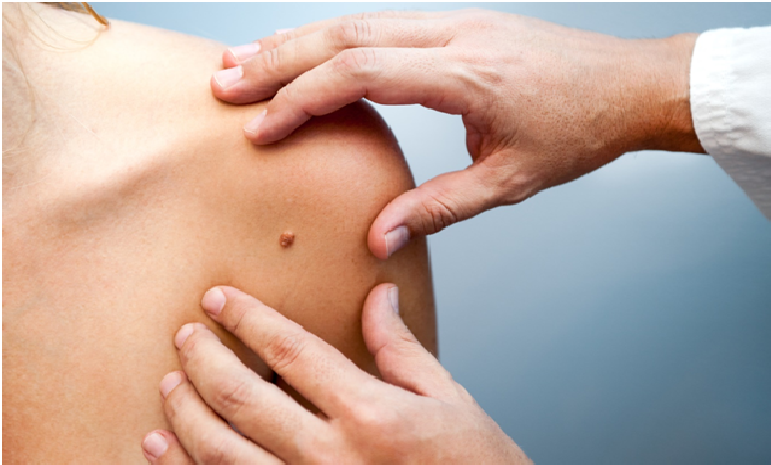Skin cancer is one of the most common types of cancer in the country. For this reason, it’s important for everyone to know a few basic facts about it. If you have any of the risk factors, it’s especially important for you to know what symptoms to look out for and arrange a regular skin cancer check. To help you become better informed, here are some of the most frequently asked questions about skin cancer.
What Is Skin Cancer?
Skin cancer is a type of cancer that causes skin cells to multiply uncontrollably. The resulting cells may form a bump, mole or sore on the skin. There are three major types of skin cancer:
- Squamous cell carcinoma: This type of cancer is mostly caused by excessive sun damage to the skin, meaning it’s most likely to develop on areas of your body that are frequently exposed to the elements.
- Basal cell carcinoma: This type of cancer is also most frequently found on parts of the body that are exposed to the sun. Basal cell carcinoma is the most common type of skin cancer.
- Melanoma: Melanoma is the rarest but also the most dangerous type of skin cancer. However, when it’s discovered in its early stages, it can often be cured.
What Causes Skin Cancer?
Many cases of skin cancer are caused by damage from the sun’s UV rays. Spending too much time outdoors without wearing appropriate sun protection can lead to sunburn, and the more sunburns you get over your lifetime, the more your odds of getting skin cancer go up. Similarly, your skin is exposed to damaging UV rays every time you use a tanning bed, which is a good reason to avoid them.
Skin cancer can also have less obvious causes. Sometimes problems with your DNA can cause skin cells to start multiplying out of control. These DNA problems can be inherited, so if one member of your family has had skin cancer, you should be vigilant yourself.
What Are the Warning Signs of Skin Cancer?
The first symptom of skin cancer is usually an unusual spot, mole or sore on the skin. This can take many forms. Basal cell carcinomas may look like a smooth, shiny raised bump, while squamous cell carcinoma often presents as a crusty sore that won’t heal. Melanoma often looks like a dark-coloured mole that grows quickly. If you notice any kind of change in your skin, even one that isn’t listed here, you should visit your doctor for a skin cancer check.
Am I At Risk?
If you have a fair complexion, you’re at greater risk of getting skin cancer. People with blue eyes, blonde hair, freckles and pale skin should conduct a regular skin cancer check to make sure nothing looks amiss. Having a family history of skin cancer also raises your risk.
How Is Skin Cancer Treated?
Surgery is the primary treatment for skin cancer. Doctors use various techniques to cut the cancer out of the skin completely whenever possible. If the cancer has spread, other treatments like chemotherapy and radiation may be used as well.
What Can I Do to Avoid Getting Skin Cancer?
Staying out of the sun is the best way to prevent the UV damage that causes skin cancer. When you do go out on sunny days, make sure you wear sunscreen and a wide-brimmed hat to protect yourself. You should also never use tanning beds.




